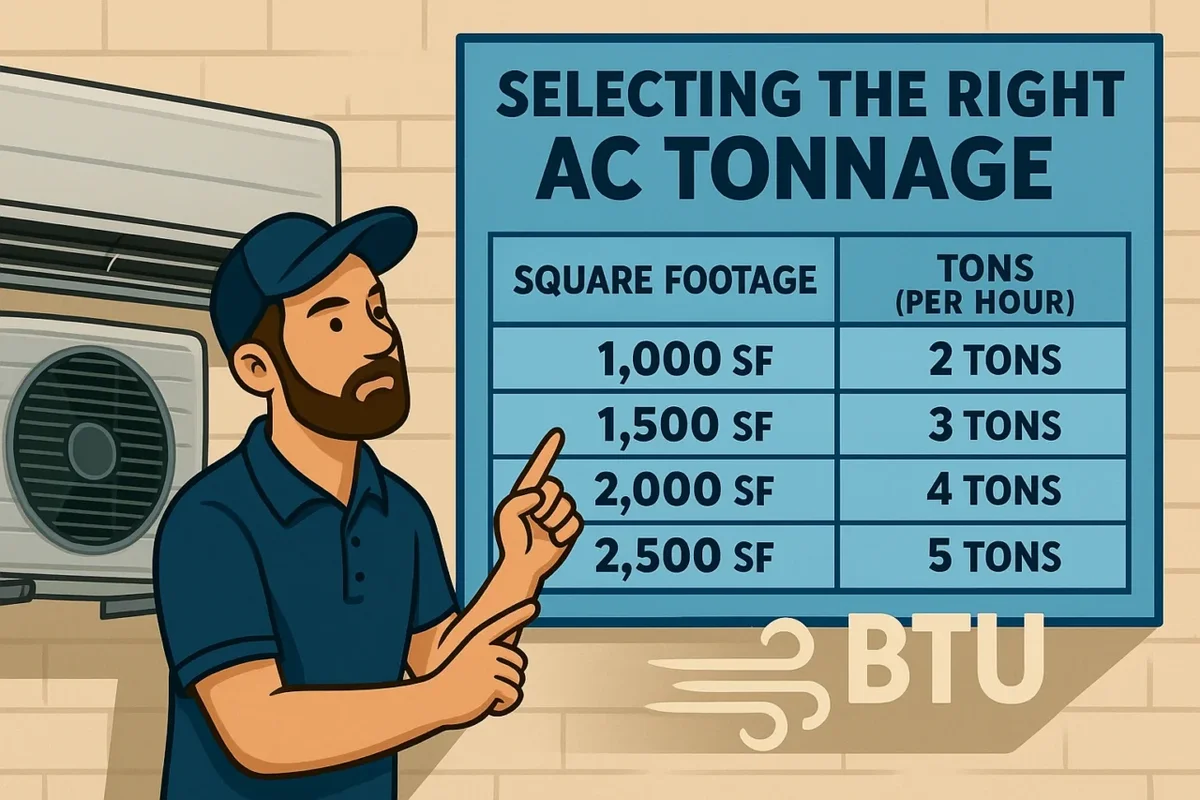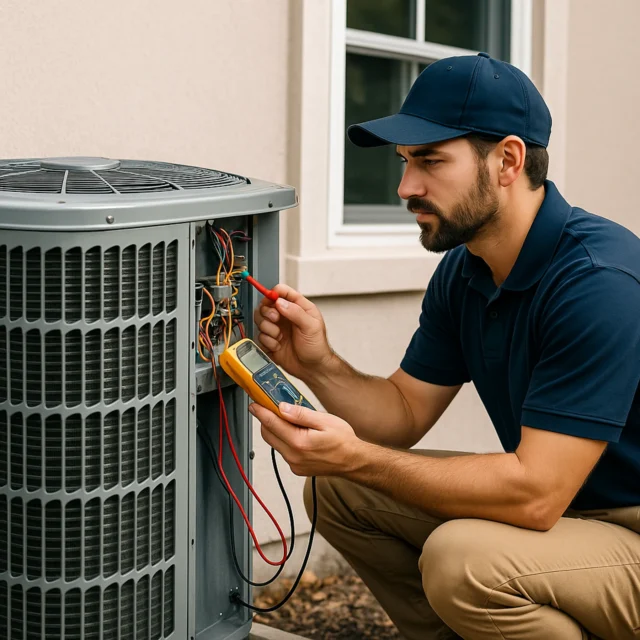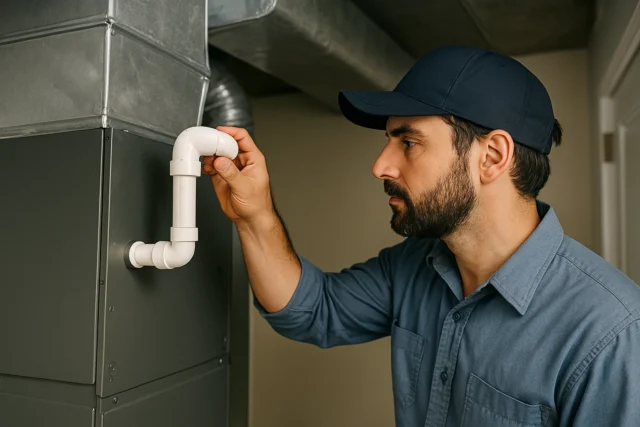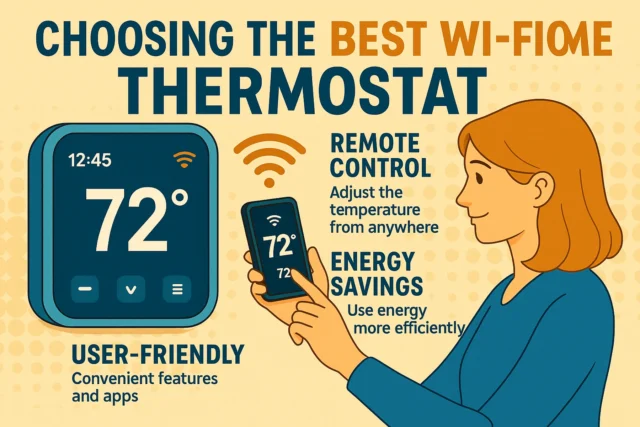What Is AC Tonnage and Why It Matters

When you hear technicians talk about AC tonnage, they’re referring to how much cooling power your air conditioner has — not how much it weighs. “Tonnage” comes from the amount of heat an AC system can remove from your home in one hour. One ton equals 12,000 BTUs (British Thermal Units) per hour.
So, for example, a 2-ton air conditioner can remove 24,000 BTUs of heat every hour. This measurement is crucial for ensuring that your home stays comfortable without wasting energy or overworking your HVAC system.
A correctly sized system is one of the most important aspects of efficient home cooling. If the tonnage is too low, your unit will struggle to cool your home. If it’s too high, it’ll cycle on and off too often, wearing out faster and wasting energy.
How to Calculate the Right AC Tonnage for Your Home
Finding the ideal tonnage for your space requires more than just square footage. Professionals from A Customer First ACuse a detailed load calculation that takes into account:
Square footage of the home
Ceiling height and insulation quality
Window size and exposure to sunlight
Local climate and humidity levels
Number of occupants and appliances
For example, most homes require about one ton of cooling for every 400–600 square feet. But this can vary greatly based on the factors above.
Pro Tip: If your AC seems to run nonstop during summer, your system might be undersized. Conversely, if it turns on and off frequently, it might be oversi
How AC Tonnage Impacts Energy Efficiency
Your air conditioner’s tonnage directly affects your energy use and comfort. A system that’s too powerful for your space wastes electricity, while one that’s too small works too hard to maintain the temperature.
Here’s what happens when your tonnage isn’t right:
Undersized AC → longer run times, uneven cooling, higher electric bills
Oversized AC → short cycles, increased humidity, premature wear and tear
Modern HVAC systems and air handlers are designed to work efficiently when properly sized. Air handlers, in particular, play a huge role in distributing conditioned air evenly throughout your home. If your air handler is outdated or mismatched to your unit’s tonnage, airflow will suffer.
For best results, always consult certified HVAC professionals like A Customer First AC before upgrading your unit.
Signs Your Home Has the Wrong AC Tonnage
Here are the most common warning signs that your air conditioner isn’t properly sized:
Hot or cold spots throughout the house
Excess humidity or sticky air inside
Frequent cycling — the AC turns on and off too often
Constant noise from ducts or vents
Rising energy bills despite regular use
If you notice any of these issues, your system might not match your home’s cooling demands. A professional inspection can determine whether it’s a tonnage problem or an airflow issue caused by the air handler.
Choosing the Right AC System for Your Home
When selecting a new air conditioner, it’s tempting to go bigger “just in case.” However, that approach often leads to inefficiency and short system lifespan. Instead, choose a properly rated unit that balances power and performance.
A few guidelines to keep in mind:
1.5–2 tons: Small homes or apartments (600–1,000 sq. ft.)
2.5–3 tons: Medium-sized homes (1,200–1,800 sq. ft.)
3.5–5 tons: Large homes (2,000+ sq. ft.)
For precise sizing, always request a load calculation from a trusted HVAC contractor. The team at A Customer First AC can evaluate your entire system — including your ducts, vents, and air handler — to make sure everything operates in harmony.
If you’re also considering an upgrade, explore their AC Service options for comprehensive support, from installation to seasonal maintenance.
How Proper Tonnage Extends System Lifespan
The benefits of correctly sized AC tonnage extend beyond comfort:
Lower energy bills thanks to efficient performance
Longer compressor lifespan from reduced strain
Quieter operation with fewer system cycles
Improved indoor air quality due to balanced humidity
When paired with a modern air handler, these advantages multiply — ensuring even temperature distribution and cleaner airflow throughout your home.
Final Thoughts: The Smart Way to Size Your AC
Choosing the right AC tonnage isn’t about guessing; it’s about balance, precision, and performance. A system that’s properly matched to your space will deliver years of reliable cooling, energy savings, and peace of mind.
If you’re unsure about your current system’s tonnage or want to upgrade to a more efficient model, schedule an inspection with the experts at A Customer First AC. Their technicians specialize in airflow analysis, tonnage evaluation, and air handler optimization — making sure every part of your HVAC system works in sync for maximum comfort.


